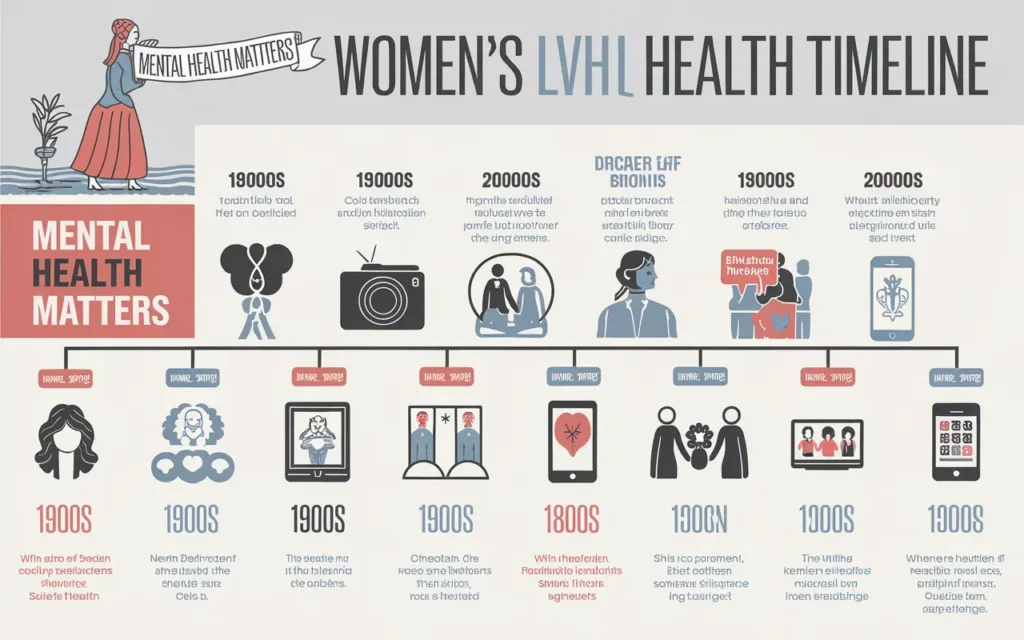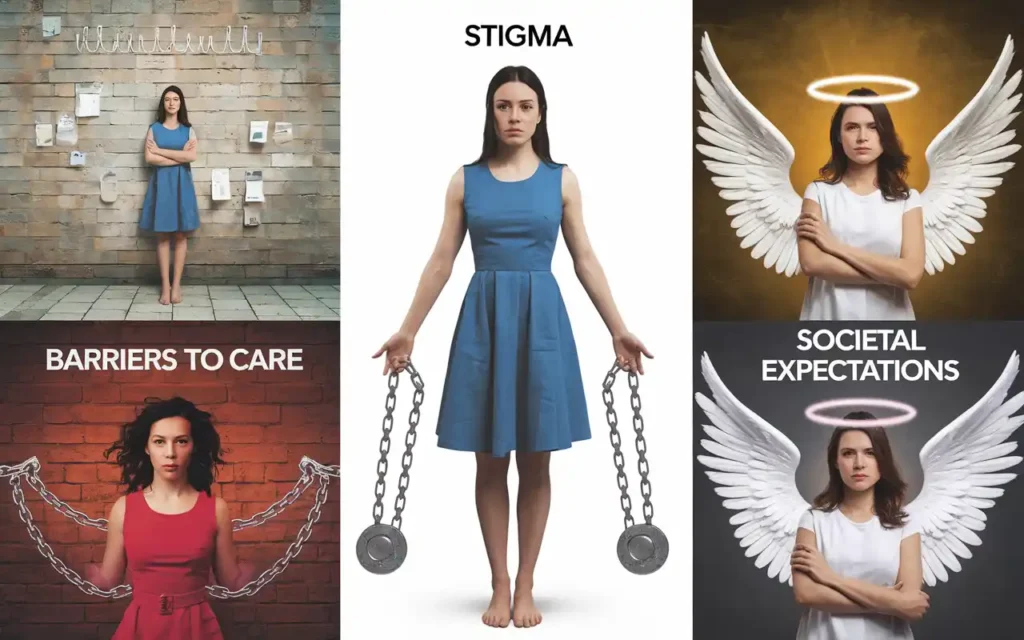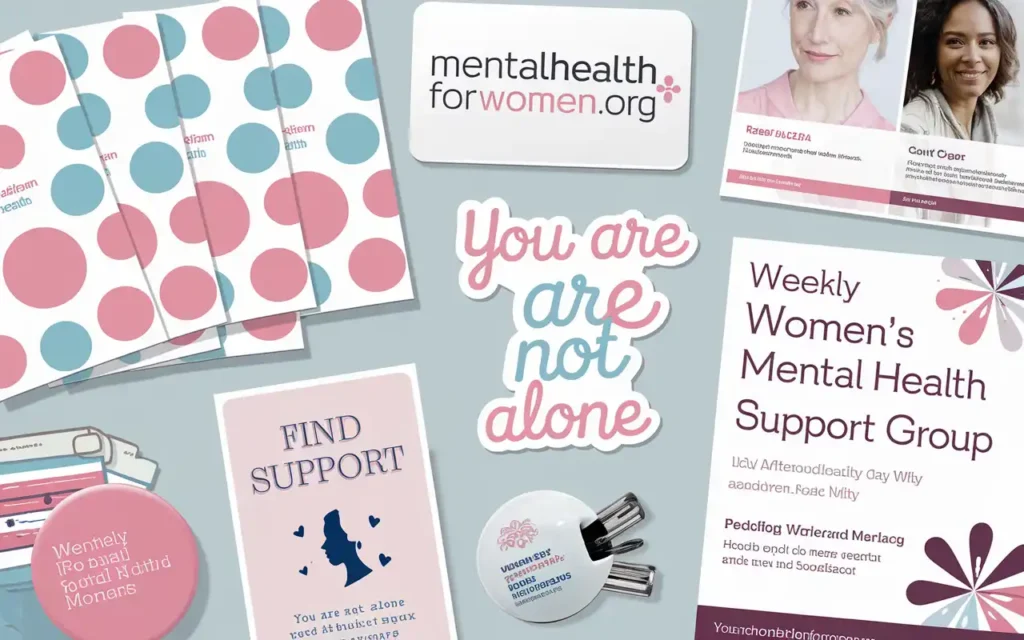Women’s Mental Health Month: Understanding, Supporting, and Empowering Women
Table of Contents
- Introduction
- The History of Women’s Mental Health Month
- Importance of Women’s Mental Health Month
- Common Mental Health Issues Affecting Women
- Challenges in Women’s Mental Health
- Supporting Women’s Mental Health
- Resources and Initiatives
- Conclusion
- References
Introduction
May is recognized as Women’s Mental Health Month in the United States, a dedicated time to shed light on the unique mental health challenges women face. This observance aims to raise awareness, reduce stigma, and promote resources tailored to women’s mental well-being. Understanding and addressing women’s mental health is crucial for fostering a healthier, more supportive society.
The History of Women’s Mental Health Month

Women’s Mental Health Month has its roots in broader mental health awareness movements. Over the years, advocacy groups and mental health organizations have recognized the necessity to focus specifically on women’s mental health due to the distinct challenges they encounter. These challenges are often influenced by biological, social, and economic factors unique to women.
The initiative to dedicate a month to women’s mental health gained momentum as awareness grew about issues such as postpartum depression, anxiety disorders, and the impact of societal pressures on women’s mental well-being. By dedicating May to this cause, organizations aim to highlight these issues and encourage conversations that lead to better support systems and resources.
Importance of Women’s Mental Health Month

Recognizing Women’s Mental Health Month serves multiple critical purposes:
- Awareness: Educates the public about the prevalence and impact of mental health issues among women.
- Stigma Reduction: Encourages open discussions, making it easier for women to seek help without fear of judgment.
- Resource Allocation: Highlights the need for targeted mental health services and funding to support women.
- Policy Advocacy: Influences policymakers to create and implement laws that protect and support women’s mental health.
By focusing on these areas, Women’s Mental Health Month plays a pivotal role in improving the overall mental well-being of women across the nation.
Common Mental Health Issues Affecting Women

Women face a variety of mental health challenges, some of which are more prevalent or manifest differently compared to men. Understanding these issues is essential for providing effective support and treatment.
Depression
Depression is one of the most common mental health disorders affecting women. Factors such as hormonal changes, reproductive events (like pregnancy and menopause), and societal pressures contribute to higher rates of depression among women.
Anxiety Disorders
Anxiety disorders, including generalized anxiety disorder (GAD), panic disorder, and social anxiety, are more frequently diagnosed in women. These conditions can significantly impact daily functioning and quality of life.
Postpartum Depression
Postpartum depression affects many women after childbirth. It goes beyond the “baby blues” and can interfere with a mother’s ability to care for herself and her child. Awareness and support during this period are crucial for recovery.
Eating Disorders
Eating disorders such as anorexia nervosa, bulimia nervosa, and binge-eating disorder are more prevalent in women. Societal standards of beauty and body image play a significant role in the development of these conditions.
Trauma and PTSD
Women are more likely to experience trauma, including domestic violence, sexual assault, and other forms of abuse, leading to post-traumatic stress disorder (PTSD). Addressing trauma is a critical component of mental health support for women.
Challenges in Women’s Mental Health

Despite the growing awareness, several challenges persist in addressing women’s mental health effectively:
Stigma and Societal Expectations
Societal norms often discourage women from expressing vulnerability or seeking help for mental health issues. This stigma can prevent women from accessing the care they need.
Access to Healthcare
Economic barriers, lack of insurance, and limited availability of specialized mental health services can hinder women’s access to necessary care.
Intersectionality
Women from marginalized communities may face compounded mental health challenges due to factors like racism, sexism, and economic disparity. Intersectionality must be considered to provide inclusive support.
Balancing Multiple Roles
Women often juggle multiple roles, including caregiving, professional responsibilities, and household management. This balancing act can lead to increased stress and burnout, negatively impacting mental health.
Supporting Women’s Mental Health

Supporting women’s mental health involves a multifaceted approach that includes education, resources, and community support. Here are several strategies to enhance support systems:
Promoting Open Conversations
Encouraging open dialogue about mental health can help reduce stigma and make it easier for women to seek help. Creating safe spaces for sharing experiences is essential.
Access to Professional Help
Ensuring that women have access to mental health professionals who understand their unique challenges is crucial. This includes providing affordable and accessible therapy and counseling services.
Workplace Support
Implementing mental health-friendly policies in the workplace, such as flexible hours, mental health days, and employee assistance programs, can support women’s mental well-being.
Community Programs
Community-based programs that offer support groups, workshops, and educational seminars can provide valuable resources and a sense of community for women facing mental health challenges.
Self-Care Practices
Encouraging self-care practices, such as mindfulness, exercise, and hobbies, can help women manage stress and improve their mental health. Promoting these practices is an essential aspect of overall well-being.
Resources and Initiatives

Various organizations and initiatives are dedicated to supporting Women’s Mental Health Month. These resources provide information, support, and advocacy to enhance women’s mental well-being.
National Institute of Mental Health (NIMH)
The National Institute of Mental Health offers extensive resources on mental health research and treatment options tailored for women. They provide educational materials, support networks, and information on ongoing studies.
Women for Women International
Women for Women International focuses on empowering women through mental health support and advocacy. Their programs include counseling, support groups, and educational workshops aimed at fostering resilience and self-sufficiency.
Local Behavioral Health Centers
Local behavioral health centers play a crucial role in offering workshops, seminars, and counseling services tailored to women’s mental health needs. These centers provide accessible and community-based support to ensure women receive the care they need.
Online Support Communities
Online platforms and support groups offer a safe space for women to share their experiences and access peer support. These communities can be invaluable for those who may not have access to in-person support systems.
Conclusion

Women’s Mental Health Month in May is a vital period for enhancing awareness, education, and support for women’s mental health in the USA. By focusing on the unique challenges women face, this observance aims to foster a society where women have the resources and support they need to achieve optimal mental well-being.
Encouraging open conversations, improving access to mental health services, and supporting community initiatives are essential steps toward improving women’s mental health outcomes. As we recognize and celebrate Women’s Mental Health Month, let’s commit to creating a more supportive and understanding environment for all women.
References
- Montare Behavioral Health: Women’s Mental Health Awareness
- Contigo Workforce Foundation: Women’s Mental Health Awareness Initiative
- National Institute of Mental Health (NIMH)
- Women’s Health.gov: National Women’s Health Week




